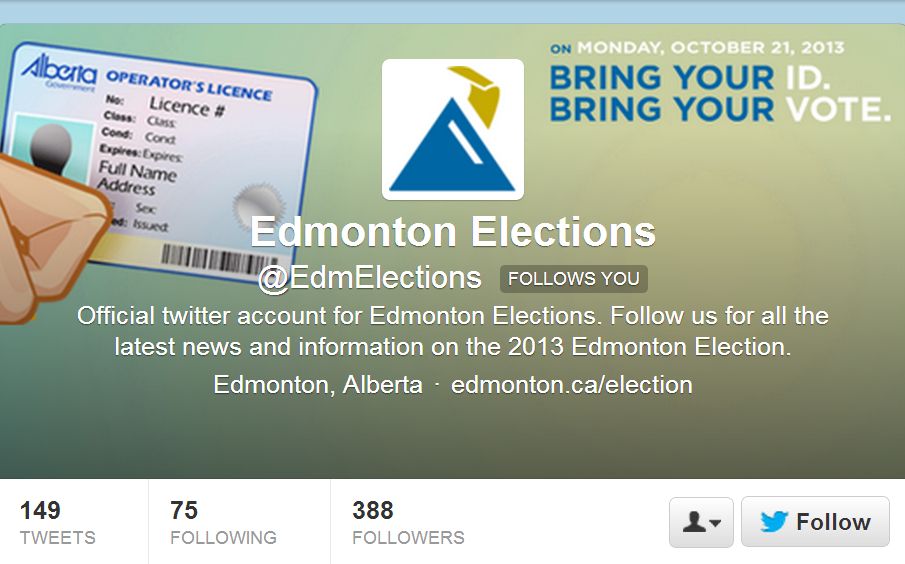EDMONTON – Just as social media has become an increasingly significant part of our daily lives, it has also become a growing aspect of political campaigns.

But just how crucial is a politician’s online presence?
“I would regard social media as a necessary – but not sufficient – campaign strategy,” explains Patricia Misutka, the outgoing Chief of Staff for Edmonton Mayor Stephen Mandel.
“You need to be on social media, but you can’t only be on social media. It’s not at the point yet of being a single means of reaching out to the public, but it’s part of an integrated strategy that a campaign would execute.”
On October 21, municipalities across Alberta will hold their civic elections. In Edmonton, residents will vote in a new mayor, and at least six new councillors.
In the race for mayor alone, there is a mix of experience and social media engagement from the candidates.
Three candidates are current city councillors, have official campaign websites, and are active on Twitter, Facebook and other social networking sites.
- Posters promoting ‘Steal From Loblaws Day’ are circulating. How did we get here?
- Video shows Ontario police sharing Trudeau’s location with protester, investigation launched
- Canadian food banks are on the brink: ‘This is not a sustainable situation’
- Solar eclipse eye damage: More than 160 cases reported in Ontario, Quebec
However, two of the other mayoral candidates do not have campaign websites. They all have Twitter accounts, but one candidate seems to have only tweeted three times since opening her account in December 2011.
Misutka reiterates that online campaigning should not be the sole tool used, but she admits it is surprising that a mayoral candidate would not have a website.
“I think it is a little shocking that people wouldn’t have it in this day in age,” she says, adding, “a serious candidate is going to maximize those tools because you want to reach as many people as you can and engage with as many as you can.”
“Three years ago on the campaign, it would have been pretty unusual for somebody not to be using some social media tool. I don’t think any candidate didn’t have a website.”
How important do voters feel candidates’ online presence is?
Misutka agrees, and stresses that online interaction must be done in combination with other methods of interaction.
“I probably had about four or five different sources of input that told me how we were doing,” she says about Mandel’s 2010 campaign for re-election. “There was a social media aspect and what I was seeing there, there was what my candidate was hearing as he was out meeting with people across the city, whether in forums or special meetings… there were the records of our door knockers and our telephone pollers, and then there was the straight polling we did. And, if you look at triangulating all of that data that comes from a mix of sources, I found a great deal of crossover similarity … of what each source told me in terms of what are the most important issues, how are we doing?”
And how does she think candidates should use the medium?
“Things like Twitter and things like Facebook provide links in and out of those broader conversations in a big way and then they provide an opportunity for the really quick response and interaction with people.”
She says there are clear advantages to using social media in the political sphere, including immediate feedback to platform or policy ideas.
“These are more engaged, these are more interactive modes of communication than putting up a billboard, or running an ad.”
“The one thing social media does more immediately than most of the other sources is give you an immediate read on how something is going to work,” she adds.
Still, social media has it downsides.
“There’s still a bit of a dark side to social media, because of the anonymity factor. Because the same sort of aggressive fast-paced environment in which you disseminate information and things move really quickly also creates an atmosphere where certain people are able to cause issues and hide behind anonymity.”
And, no matter how big a role social media continues to play in our lives – and in elections – Misutka says it will never replace face-to-face interactions with people.
“What actually happens out on the street in talking to people and using all channels; that still ultimately makes the difference.”



Comments